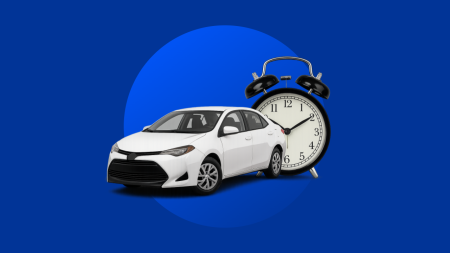Key takeaways
- The best way to pay medical bills is to set up a payment plan with the provider directly, but you can make those payments with a credit card.
- Medical debt has federal protections when it comes to your credit report. But if it turns into consumer debt, it can affect your credit report and score.
- If you finance a medical bill with a credit card or loan, the high credit utilization or any missed payments could hurt your credit score. You might also rack up interest charges.
Medical bills can be costly and unexpected even after insurance, and many Americans aren’t prepared to pay them out of pocket. Some people may pull out their credit card to pay a medical bill if they don’t have the cash on hand or simply because they want to earn rewards on the expense.
Unfortunately, 15 percent of credit card debtors say emergency and/or unexpected medical bills are the reason they carry a balance, according to Bankrate’s 2025 Credit Card Debt Survey.
Recently, I broke my tibia and fibula while skiing and underwent emergency surgery for an intramedullary nail. The procedure alone cost a whopping $69,000, and that didn’t include the cost of my anesthesia, X-rays, hospital stay, or physical therapy. Fortunately, I have health insurance, so the incident quickly reached the threshold of my deductible and out-of-pocket maximum. Still, I’m staring down several thousand dollars’ worth of medical bills.
As I’m creating my own repayment strategy, let’s explore when paying for medical bills with a credit card is a decent option — and when it’s not. I also spoke to a physician and medical billing expert about how to not let medical debt hurt your credit score.
Emergencies don’t happen when we are able to pay to take care of them easily… Emergencies never happen at good times.
— Virgie Bright Ellington, physician and principal at Crush Medical Debt
Pros and cons of paying medical bills with a credit card
You can use a credit card to pay hospital bills or other medical expenses, but there are risks.
The biggest consideration is that, by paying your bills with a credit card, the medical debt becomes consumer debt. Federal protections limit how medical debt affects your credit score, and there are additional pending rules that would keep medical debt off your credit report entirely. Consumer debt, however, is under no such regulations.
Pros
- Could take advantage of a 0 percent intro APR offer
- Rewards potential
- Convenience
Cons
- No federal protections for your credit score
- High interest charges if you carry a balance
- Increased credit utilization
How medical debt affects your credit
Thanks to recent federal rules, medical bills don’t impact your credit history nearly as much as other types of debt.
In 2023, the three major credit bureaus began removing medical bills in collections under $500, less than a year old or already paid off from consumers’ credit reports.
Then, in early 2025, the Consumer Financial Protection Bureau (CFPB) ruled that all medical debt must be removed from credit reports — an estimated $49 billion for 15 million Americans. Note that this ruling might be challenged by the new administration.
Virgie Bright Ellington, a physician and medical billing expert at Crush Medical Debt, advises keeping yourself under these medical debt protections. She explains that consumer debt — credit cards, personal loans and HELOCs, for example — is treated differently than medical debt. Once you pay a medical bill with one of those methods, it becomes consumer debt. With that change, you lose federal protections for your credit.
If you end up carrying a balance on your credit card, that can raise your credit utilization ratio, which is a credit-scoring factor. And making late or missed payments on your card or loan will hurt your credit score.
When it makes sense to pay medical bills with a credit card
- If you’re paying for a provider payment plan with a credit card. By arranging an affordable payment plan with your hospital or provider, you can space out your payments and make them with a credit card if you want. That can help you turn a too-big medical bill into manageable chunks that you can afford to pay off. Just remember, if you don’t pay your credit card statement at the end of the billing cycle, missed payments may show up on your credit report.
- If you want to earn rewards. Rewards credit cards offer points, miles or cash back on everyday purchases. If you have the money on hand to pay the full medical bill, you could charge it to your rewards card, reap the rewards and then pay off the balance. Keep in mind that carrying a balance and racking up interest will outweigh the value of any rewards, and, once again, this payment method isn’t federally protected from showing up on your credit report.
- If you don’t have to pay interest. A 0 percent intro APR credit card can offer you 12 to 21 months (or longer!) of carrying a balance interest-free before the regular APR kicks in. That buys you time to pay off medical bills without accruing interest. Some 0 percent APR cards also earn rewards, which means you could get cash back or points on those medical expenses. You’ll just want to have a plan for paying off the balance by the end of the intro period. Again, your medical debt becomes consumer debt as soon as you pay it with a credit card, so it isn’t federally protected and can affect your credit score.
When not to pay medical bills with a credit card
- If it might hurt your credit score. Paying for medical bills with a credit card may affect your credit score in more ways than one. A credit card is considered consumer debt, which — unlike medical debt — isn’t protected from appearing on your credit report. It can raise your credit utilization ratio, and it could also lead to late or missed payments. If you apply for a new card to pay those bills, that hard inquiry will also ding your credit.
- If you’ll accrue interest. The average credit card interest rate is above 20 percent, which is higher than that of most personal loans. Other medical bill payment options charge no interest at all. If you’re not able to pay off the full medical bill on your credit card without carrying a balance, it’s best not to use your credit card. Those interest charges will only add to your debt.
- If it maxes out your credit limit. Maxing out or getting close to your credit limit raises your credit utilization ratio, which affects your credit score. Experts recommend keeping your credit utilization below 30 percent. Let’s say you charge a $2,500 medical bill to a card with a $3,000 limit; your credit utilization will reach 83 percent. If your credit utilization stays this high over several months, your credit score may take a hit.
Are medical credit cards worth it?
If you were handed an application for a medical credit card at your provider’s office, you might wonder if that’s the right way to pay.
Medical credit cards, offered by issuers like CareCredit, help you finance large medical bills in monthly payments at zero interest — at first. However, you’ll want to check the fine print for something called deferred interest. If you still have a balance once the promotional period ends, the issuer will charge for all the interest you would’ve owed since day one, based on the regular APR.
You could end up owing a lot more interest than planned — especially because medical credit cards often charge higher interest rates than typical credit cards.
Plus, debt on a medical credit card doesn’t receive federal protections and will show up on your credit report.
The best way to pay medical bills, according to an expert
Bright Ellington’s advice is to always pay the provider directly.
“Once you have determined that the bill that you receive and you’re paying is 100 percent accurate,” she says, “make a payment plan directly with the provider who is issuing the bill for the services you received.”
That’s because your debt will stay classified as medical debt, and will have less or no impact on your credit report.
Bright Ellington suggests calling your provider first to ask for a bill with CPT codes, which lets you calculate a fair value for your bill based on Medicare rates. Then, you can try to negotiate a new bill with the provider based on what you’re willing and able to pay. You can also apply for financial aid, which nonprofit hospitals are required to offer.
Your provider will typically offer an interest-free payment plan for a number of months. It might also offer you a discount for paying the bill in full by the first due date.
She says that some people make their payments to the provider with a credit card to get points or cash back. But “make sure that it is an amount that you can pay every single month,” she advises. Otherwise, a missed payment on your credit card bill can affect your credit score and start accruing interest.

How to pay huge medical bills
If you’re facing medical debt, there are several ways to get financial help and start paying it off.
Read these 12 ideas
How I’m paying for my medical bills
As I mentioned, I have several thousand dollars in medical bills due to an emergency surgery. When I called my provider to ask about payment options, I was offered a 20 percent discount for paying my bill in full by the due date. Or, I could choose an 18-month payment plan with no interest.
Conveniently, I’m about to receive my tax refund. And like 19 percent of Americans who expected a tax refund in 2024, I’ll use it to pay off debt — specifically, my medical debt.
The 20 percent discount saves me several hundred dollars in the long run, and I have the cash on hand to pay what’s left after my tax refund. So I’ll pay my whole bill at once. Because I want to earn rewards, I’ll use my credit card and earn 1X points per dollar. But I’m only using my card because I know I can pay off the balance, so it won’t hurt my credit score.
Can you pay for health insurance with a credit card?
If you’re self-employed, unemployed or an early retiree and enrolling in your own health insurance, you may be able to pay your premiums with a credit card. Many of the main healthcare providers accept credit cards.
But if you receive health insurance from your employer, you probably can’t pay for it with a credit card. Employer-sponsored plans let you pay premiums pre-tax, which means they must be deducted from your paycheck.
The bottom line
How to pay your medical bills is complicated — on purpose. Many institutions profit by overcharging and collecting interest from Americans. By doing your homework, you can pay off your medical bills while protecting your credit score and avoiding interest.
The best way to pay your medical bills is by paying the provider directly, either all at once — if you have the cash on hand — or with an interest-free payment plan. You can use a credit card to pay the provider, but try not to carry a balance or miss payments. Your credit score may end up paying the price.
Read the full article here









